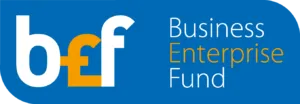
Are Small Business Loans Fixed or Variable?
Small business loans can come in two main types of interest rate structures, fixed and variable. The type of interest rate offered largely depends on the type of loan you require, your business’s financial circumstances, and the terms the lender sets.


Understanding the differences between the two types of interest rates and how they impact your loan payments is essential in determining which type is the best for your business.
At BEF, most of the loans we offer have a variable interest rate that is above the Bank of England base rate. We offer a 12 and a half percent fixed rate plus a variable base rate benchmarked against the industry standard.
The GGS (Government Growth Scheme)
Another initiative available to small businesses is the Government Growth Scheme (GGS) which is designed to provide access to finance for smaller companies in the UK. The scheme is partnered with accredited lenders offering various loans and terms to suit various small companies and their needs. The scheme is accessible to companies with a valuation up to £2m and offers the lender a 70% government-backed guarantee.
What Is a Variable Business Loan?
A variable business loan has a fluctuating interest rate that varies depending on the benchmark rate, such as the Bank of England base rate. The interest of a variable loan can change from quarterly to annually, dependent on the changes to the underlying benchmark rate. Factors like the economy, inflation, and central bank policies can affect the interest rate.
What Are the Benefits of a Variable Business Loan?
While a fixed-rate loan offers predictability and the assurance that the payments will never increase, variable-rate loans offer many benefits that can make them a more appealing choice to small businesses.
Lower Initial Rates
Variable-rate loans often begin with an introductory period of a few years, which usually includes a lower starting rate. This can be an attractive option to small businesses, as they can benefit from a lower rate in the beginning when finances are tight, and pay back larger amounts in the future when their revenue is stronger.
Potential Savings
Opting for a variable business loan over a fixed business loan can also offer potential savings. When interest rates fall, the rate on your loan may also be reduced, leading to lower monthly payments and a reduction in the total interest paid over the life of the loan.
Flexibility
Another advantage of a variable-rate loan is that it can be more flexible, offering easier refinancing or prepayment options, and allowing borrowers to adjust their loan terms. If a business has become profitable enough to pay off their loan early, a variable loan may enable them to do so without incurring hefty penalties.
What Are Fixed Business Loans?
A fixed-rate business loan has an interest rate that remains constant throughout the loan's term. This means that the monthly payments will be the same from start to finish, regardless of economic fluctuations. With a fixed-rate loan, the rate will be agreed upon at the time of borrowing, with a set monthly payment to repay the loan.
What Are the Benefits of a Fixed Business Loan?
There are many benefits and reasons why small businesses prefer to opt for a fixed-rate loan, as they provide predictability, stability, and protection against rising interest rates.
Payment Predictability
A fixed business loan will have the same payment every month until the loan is fully repaid, which allows a business to manage its cash flow and plan budgets more effectively.
Protection Against Rate Fluctuations
Choosing a fixed-rate loan means that you’re safeguarded against fluctuations in interest rate, ensuring that your repayment will stay the same regardless of the changes in the market.
Stable Loan Terms
Fixed-rate loans typically have clear and stable terms, and this predictability means that business owners can make informed decisions about the future of the company.
How Do Interest Rates Affect Your Bank Loan?
Fluctuations in interest rates can have a direct impact on your monthly loan repayments, either decreasing or increasing your payments and overall borrowing costs. While low interest rates can significantly reduce your financial burden, high interest rates can put pressure on a business’s cash flow.
It’s essential to understand how these rates can affect your business in the long-term, to help you manage your finances and debt-to-income ration effectively. The current inflation rate in 2025 sits at 4.75%, with previous years at 5.25% (2024), and 4.50% (2023). While rates remain comparatively high compared to recent history, the small changes in percentages provide some stability for financial planning for businesses in 2025.

